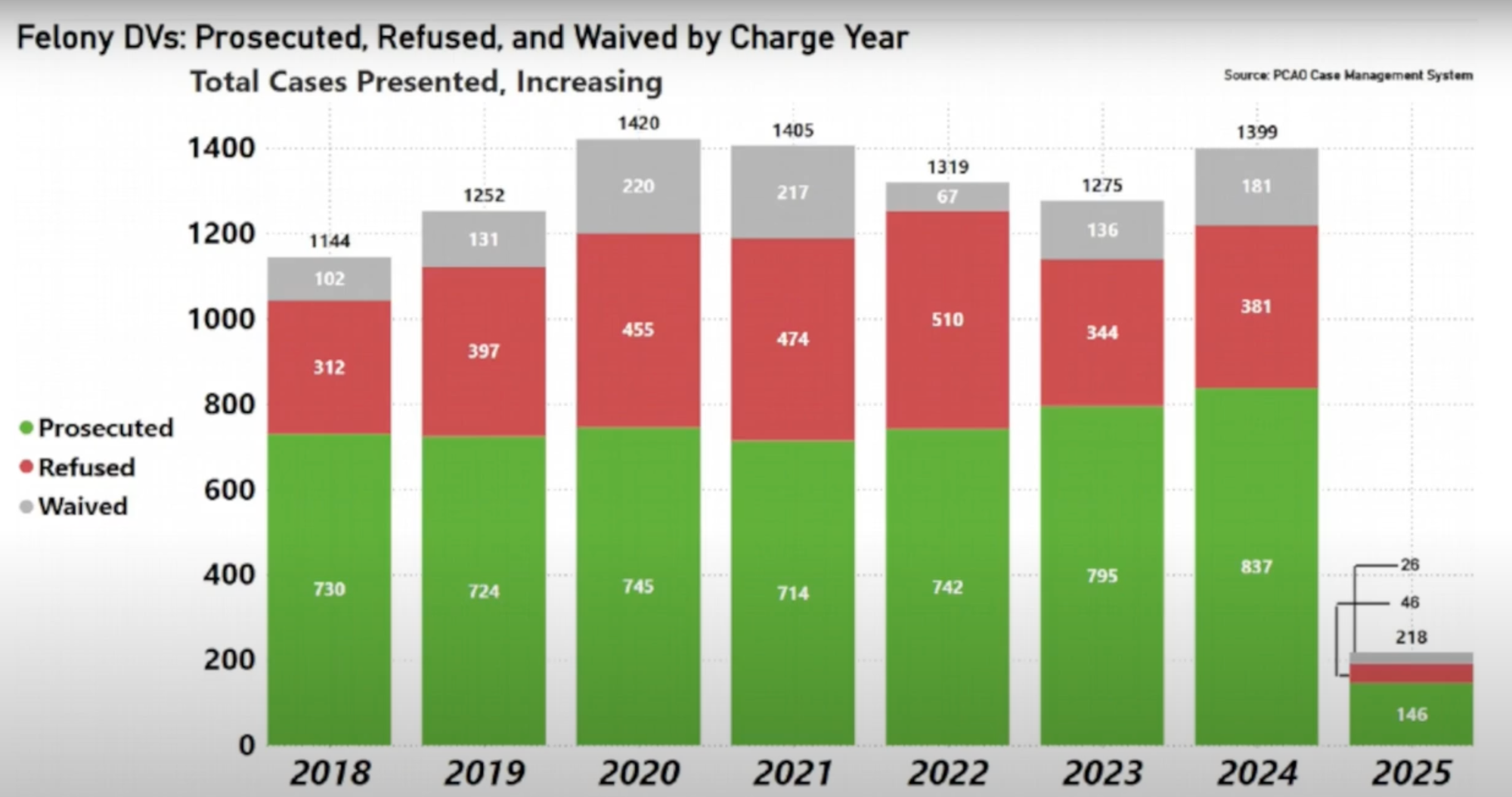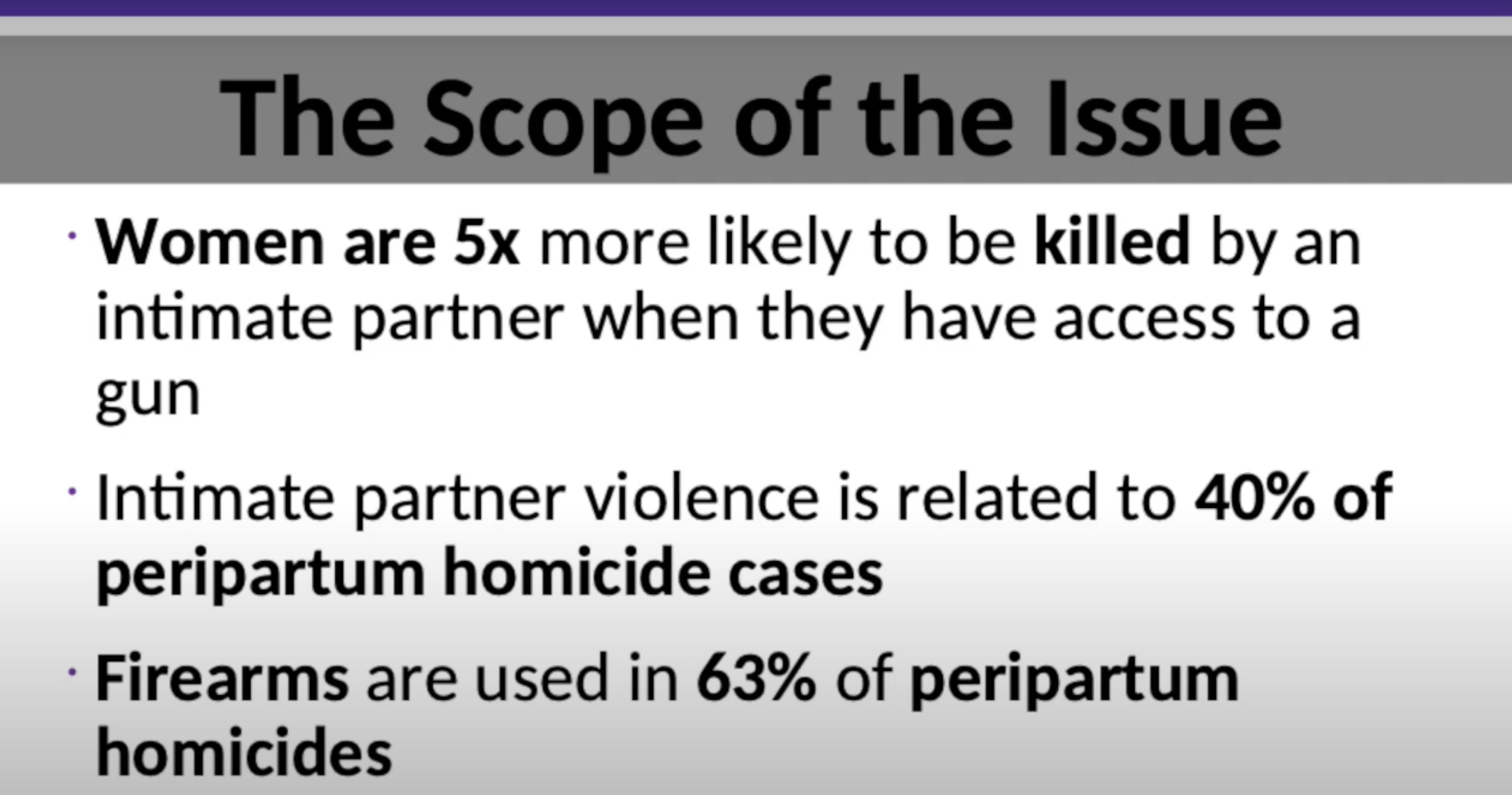League of Women Voters panel spotlights domestic violence, housing crisis
The League of Women Voters of Greater Tucson's annual fundraiser highlighted the intersection of domestic violence and housing, featuring expert panelists, local advocates, and community "sheros" who urged action and support for survivors.a

Experts and advocates came together through the League of Women Voters of Greater Tucson's annual fundraiser to spotlight the critical link between domestic violence and housing and prompt attendees to take action.
The league is a nonpartisan group dedicated to empowering and educating community members on how to enhance government effectiveness.
The theme for the “Issues and Eggs” fundraiser was “Safe Lives, Safe Homes,” with the group hoping to raise awareness about the importance of supporting community members who are experiencing or have experienced domestic violence.
“While homelessness is visible to all of us every day, domestic violence is hidden away until it suddenly erupts into the news when someone is murdered by their partner,” said League President Emily Bridson, urging attendees to take an active role in supporting their neighbors.
Panelists included government employees and representatives from the nonprofit sector, who touched on topics including federal funding, community resources, firearms, housing access, and more.
“When you need to ask the community for a second term, you better believe you are listening and hearing and tracking the patterns of where the concerns are most great,” said Pima County Attorney Laura Conover, who ran for and won a second term in August’s primary election. “Domestic violence is one of those.”
Conover told attendees that domestic violence makes up 40% to 50% of calls to the county’s 911 system and a large portion of her office’s caseload.
But nationwide, the statistics surrounding the prosecution of felony domestic violence cases seem to paint a bleak picture, Conover said.
“Fifty percent of what law enforcement brings into a district attorney’s office is then prosecuted. That’s the natural check and balance of the system,” Conover said.

She said police officers operate at probable cause, which is a lower standard of evidence than prosecutors. But prosecutors only file criminal charges if they reasonably believe the evidence is sufficient to support conviction beyond a reasonable doubt and that the decision to charge is in the interest of justice.
“Liberty is at stake,” she said. “We analyze all the evidence to make sure we have a felony conviction, and that’s why the felony rate is what it is.”
She said that in her office, the rate floats slightly above the nationwide average. Just because a case is not prosecuted as a felony does not mean it’s dismissed, she said. The office also pursues misdemeanor charges in domestic violence cases.
The urgency that existed 50 years ago when it comes to domestic violence is just as strong today, according to Emerge Center Against Domestic Abuse CEO Anna Harper
“In the last month and a half, we’ve lost two young women to domestic abuse and gun violence, they were 24 and 26 years old,” she said.”All of us know someone.”
Harper said that the 15,000 domestic violence-related calls each year to law enforcement in Pima County, saying that it’s just the tip of the iceberg.
“There's some national research that tells us that only about 10%of the actual incidents of domestic abuse are reported,” she said. “That puts that 15,000 in perspective. The urgency is still here.”
She said that under the tip of the iceberg is “very real danger” and a very real need to understand the risk and prevalence of gun violence in Pima County.
In 2023, Emerge helped restart Pima County’s fatality review team that had been dormant since 2019 and evaluated the 26 domestic violence-related fatalities that took place between 2019 and 2022.
Of those fatalities, 21 involved intimate partners and 15 included a firearm at some point in the relationship.
Harper said that this data helps Emerge and its partners decide how to best use their resources to help fill gaps and generate solutions.
“The research about fatalities and domestic violence tells us that it is critical that survivors know that services are available. That can impact the trajectory of a relationship,” she said. “The urgency to maintain services is now. We cannot go back to where we have been.”

Diana Sheldon, Interim CEO of Sister Jose Women’s Center, started volunteering at the shelter in 2018. In the last year, it served more than 30,000 women at the rate of around 100 to 150 each day.
Sister Jose is the only shelter in Tucson that allows pets, saying that many unhoused women have dogs to help keep them safe.
Visitors to Sister Jose range in age from 18 to 80, with the average age being 57.
“About 30% of our women have experienced domestic violence. And as Anna mentioned, we don’t know who the rest are, because they don’t want to share it,” she said. “A lot of times we recognize it, maybe they come in with a black eye or bruises on their body and then we can kind of easily reach out and talk to them a little more in depth. But normally that’s not shared with us.”
Tucson Chief of Police Chad Kasmar said he was verbally abused by his father growing up that only escalated to physical violence on one occasion.
“I stood up, and that often made me the target of my father’s anger,” Kasmar said. “I remember as about a 14-year-old boy when that turned physical that I didn’t have a place to escape and I didn’t have a place to retreat. That stuck with me.”
About 7% of the 142,000 calls the department responded to were related to domestic violence, and most of the calls probably didn’t come from the victims, he said, but a neighbor or bystander who decided to speak up.
The department investigated nearly 10,000 cases involving domestic violence, many of which were misdemeanors, Kasmar said, adding that his office collaborates closely with community partners to ensure accountability.
“The reality is, everyone sitting … in this room has experienced it, or has a friend, colleague or family member that is currently experiencing it,” Kasmar said. “We have a lot of work to do here in this community.”
The event also honored local “sheros” for their work in teh community, including Desiree Cook, founder and CEO of the nonprofit I Am You 360, Jessica Howe, co-founder of transitional housing program The Earnest House, and Cheree Meeks, assistant dean for leadership and student development in the University of Arizona’s W.A. Franke Honors College.
“This event is a good way to inform people about the realities of domestic violence.” said one attendee, Barbara, who declined to share her last name.
Caitlin Schmidt is Editor and Publisher of Tucson Spotlight. Contact her at caitlin@tucsonspotlight.org.
Abbie Andrus is a University of Arizona alum and Tucson Spotlight reporter. Contact her at asandrus@arizona.edu.
Tucson Spotlight is a community-based newsroom that provides paid opportunities for students and rising journalists in Southern Arizona. Please support our work with a paid subscription.




